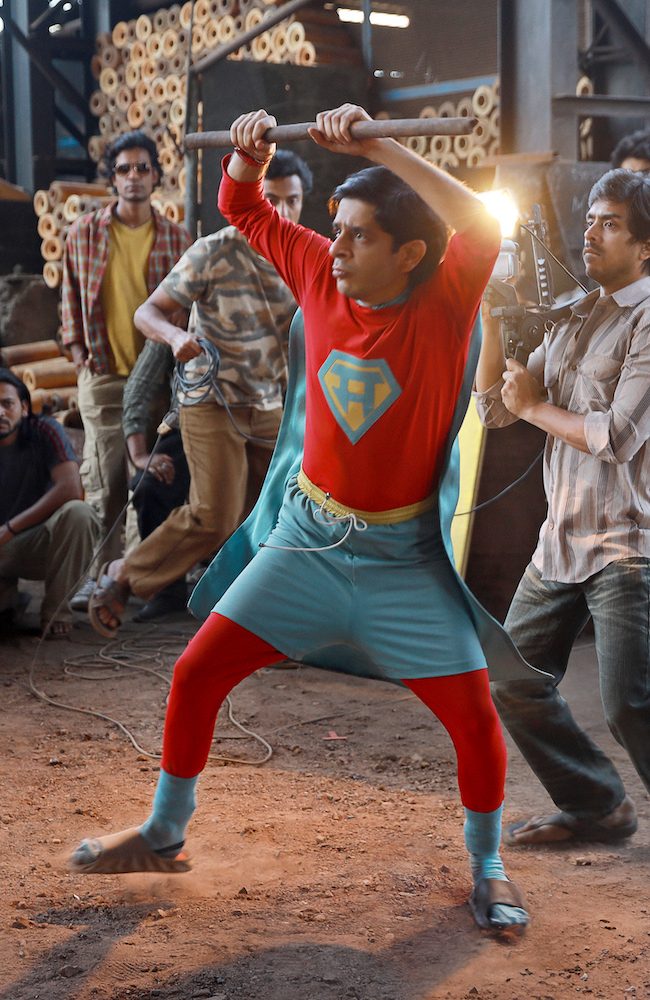
(After winning the World Cinema Documentary Jury Grand Prize at the 2020 Sundance Film Festival, director Hupert Sauper’s Epicentro lands on VOD Friday, August 28. Like what you see here on Hammer to Nail? Why not give just $1.00 per month via Patreon to help keep us going?)
Life has never been easy for the average Cuban since the Europeans landed in 1492 and then, almost 20 years later, began the process of colonization. The haves take, increasing wealth disparities and leaving vast swaths of the population disenfranchised, if not outright slaves (which Cuba officially had plenty of until the abominable practice was outlawed in 1886, 21 years after the end of the American Civil War). The original population disappeared ages ago, either killed or subsumed into the mix of Spanish, African and other foreign arrivals over the past 500+ years. By the time the Fidel Castro-led communist revolution overthrew President Fulgencio Batista in 1958, the ruling elites had long had it coming. This is true in most such socio-political upheavals, no matter what disappointments and horrors may follow: that the underclass thirsts for justice and revenge is completely understandable; never more so than in Cuba. In French director Hupert Sauper’s expressive and innovative mostly observational new documentary Epicentro, we find ourselves on the island of today, still paying for the sins of others, yet ever a survivor.
The first thing that strikes the eye, and then never leaves its focus, is the decrepit nature of all the buildings and infrastructure, everywhere…until the camera eventually takes us into the tourist center, where the riches lie. Before we get there, we initially spend a lot of time both learning the history of imperialist exploitation of the place, particularly by the United States, and getting to know a few characters who recur, throughout. Among them are children wise beyond their years and one particular woman wise because of them. Joining the cast, later in the story, is Charlie Chaplin’s granddaughter Oona, herself an actress and here to train the next generation of performers, fluent in Spanish because of her Chilean father, who informs the delighted young spectators of The Gold Rush and The Great Dictator about her connection to their maker. Sauper (We Come As Friends) is present, as well, in voiceover narration, walking us through the falsified details of the 1898 sinking of the USS Maine that led to subsequent American takeover of Spanish possessions. Ultimately, it doesn’t matter who’s in charge, as it’s the people who always suffer.
“Cinematography is writing in motion,” he declares, revealing the power of the moving image, as represented by staged scenes of the Maine under fire, to alter facts and change the course of human events. And Cuba, as Sauper states, is the best place for such a meditation, representing as it does the epicenter (or titular “epicentro”) of the three forces that have shaped today’s world: the slave trade, colonization and the globalization of modern power. Back in Batista’s day, with the Italian-American mafia in control of drugs, gambling and prostitution, money flowed upwards. It still does, despite the promises of Castro and others, though most ordinary Cubans appear to feel that life was good for them (perhaps for the first time) until the 1991 collapse of their patron nation, the USSR. But now, it’s back to the same old, same old, thanks to a U.S. embargo and a government unable to adapt to the end of the Cold War.
Speaking of which, it’s hard to watch Epicentro and not think of Soviet director Mikhail Kalatozov’s long-neglected 1964 docu-fiction masterpiece I Am Cuba, which despite its narrative flaws similarly tried to explore the island’s record of oppression. Both movies feature moments of cinematic wonder, strikingly composed frames jolting us to attention. Sauper may not have quite the visual daring of his predecessor, but he comes awfully close, and though this viewer might wish for less of his narration and more pure observation, Epicentro nevertheless stands as a monumental tribute to a place deserving of better than it normally gets. May it soon, somehow, become a center of something fresh and formidable, an island for all to appreciate, rather than just a select, entitled few. Let that be set in motion by this particular act of engaging activist filmmaking.
– Christopher Llewellyn Reed (@ChrisReedFilm)











